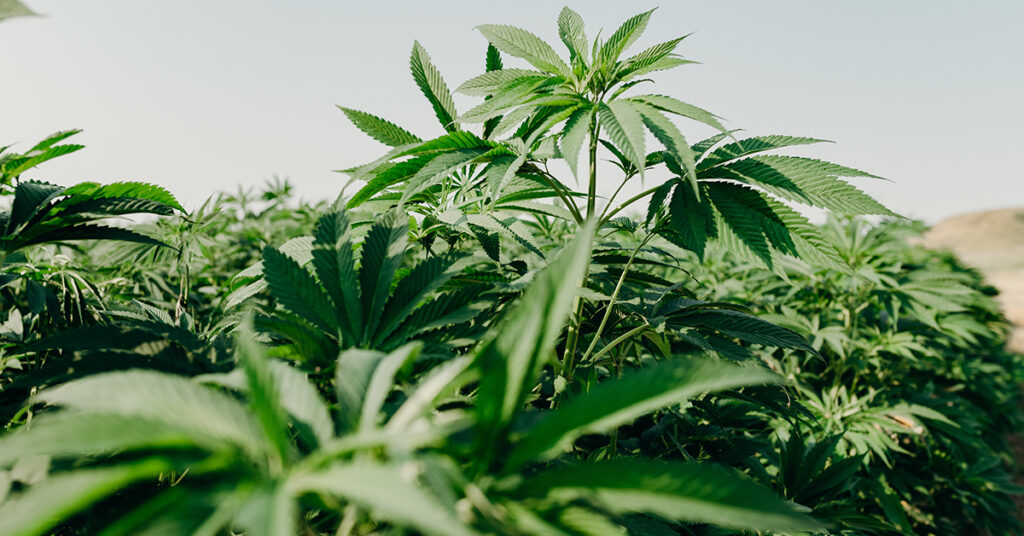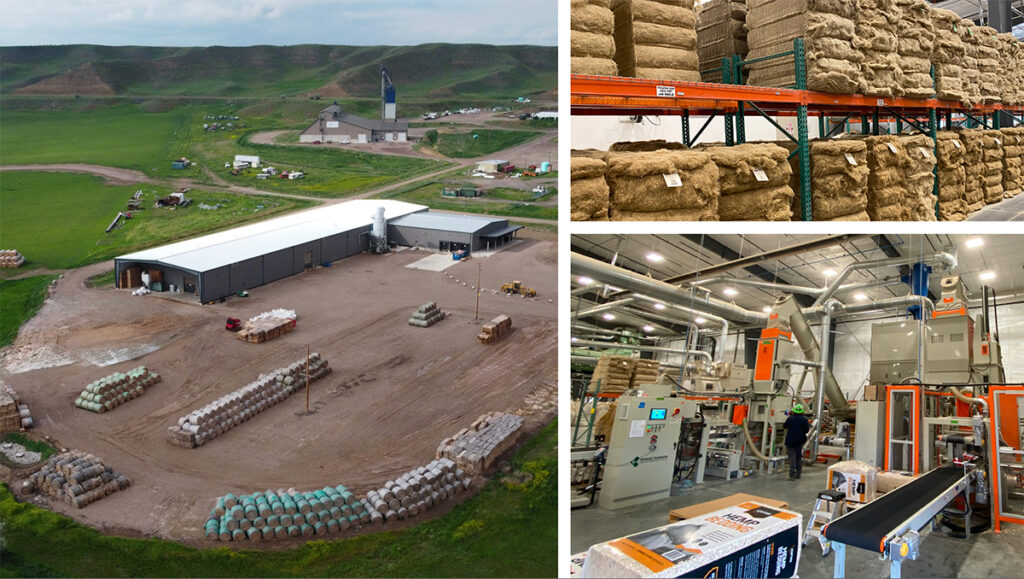In the world of sustainable agriculture, there are very few crops that truly align with all sectors of sustainability—environmental, economic, and social. With the agriculture industry increasingly prioritizing top-yielding varieties and genetically modified traits, the trend toward monoculture farming continues to accelerate. As farm sizes grow into large-scale corporate operations, the small family farms that once formed the backbone of our nation are being bought out or forced to close. These shifts, occurring at an alarming pace, highlight the urgent need for transformative change in agricultural practices. One crop that holds the promise to spearhead this change is hemp. This change all starts with education. Here at IND HEMP, we prioritize educating the public on hemp, especially on the sustainable benefits of hemp. IND HEMP’s Lead Agronomist, Dalton Wittmer, had the privilege of guest lecturing for a graduate level Sustainable Agriculture class at Wright State University this fall and here are some of the takeaways.

Hemp is uniquely suited to address several critical challenges in agriculture and beyond. It thrives in tough conditions, with a natural drought tolerance that makes it a resilient option for degraded or arid soils. Hemp’s ability to grow with lower fertilizer and pesticide inputs compared to other row crops positions it as an environmentally friendly alternative. According to the article “Industrial hemp fiber: A sustainable and economical alternative to cotton.” Journal of Cleaner Production 268 (2020)”, hemp requires up to 30% less water than cotton, while producing up to 3X more fiber per hectare. Its deep root system also helps prevent soil erosion, improve soil structure, and enhance nutrient cycling, making it an excellent rotational crop.
Furthermore, hemp acts as a powerful carbon sink. In a study led by Darshil Shah from the Centre for Natural Material Innovation at the University of Cambridge found that hemp can sequester 8 to 15 tons of CO2 per hectare—more than most forests. This means that in addition to cleaning the air we breathe, hemp reduces the environmental impact of farming by mitigating greenhouse gas emissions. Its contribution doesn’t stop there: hemp’s natural phytoremediation capabilities allow it to absorb heavy metals and toxins from the soil, restoring degraded land and enhancing its fertility for future use.
The versatility of hemp is unparalleled. From its roots to its flowers, every part of the plant can be used to create a diverse range of products, including textiles, food, paper, construction materials, bioplastics, animal feed, and biofuels. Hemp-based bioplastics, for example, could help reduce the world’s dependence on petroleum, while hempcrete, a sustainable construction material, offers competitive insulation properties with the benefit of a negative carbon footprint. These applications hold the potential to replace unsustainable materials like synthetic fibers and fossil-fuel-based plastics, reducing environmental degradation and dependence on non-renewable resources.
The Bigger Picture: Hemp in Sustainable Agriculture and Crop Rotations
The global soil health crisis is another area where hemp can play a pivotal role. It is estimated that 33% of the world’s soil is already degraded, with monoculture farming and excessive chemical inputs contributing to the problem. Hemp’s ability to naturally suppress weeds, reduce the need for herbicides, and promote biodiversity makes it an ideal candidate for inclusion in crop rotations. Studies have shown that rotating hemp with traditional crops like wheat and corn can improve overall yield and soil health by increasing organic matter and restoring vital nutrients.
Additionally, hemp’s impact extends to water systems. By reducing the reliance on chemical inputs, hemp cultivation minimizes agricultural runoff, which is a leading cause of water pollution. Cleaner rivers and streams result in improved water quality for ecosystems and communities alike, addressing a growing global challenge.
Economic and Social Benefits
The ripple effects of hemp go beyond environmental sustainability. The crop has the potential to drive economic revitalization, particularly in rural communities. As the demand for hemp-based products grows, new industries and job opportunities are emerging, ranging from farming and processing to manufacturing and retail. As stated in the report Global Industrial Hemp Market by Type (Research and Markets, 2025), the U.S. hemp industry alone is projected to surpass $18 billion by 2027, with applications spanning multiple sectors, from fashion to automotive manufacturing.
Incorporating hemp into agriculture not only helps stabilize farm incomes but also diversifies the risks associated with traditional monoculture practices. For smaller farms struggling to compete in a corporatized industry, hemp offers a pathway to profitability and resilience.

A Call to Action
Hemp is not a panacea for the challenges facing modern agriculture, but it is undoubtedly a powerful tool in the fight for sustainability. As we face an era of climate uncertainty, depleted soils, and polluted waters, it is imperative to embrace solutions that benefit both people and the planet. Hemp’s unique properties, combined with its versatility, position it as a cornerstone of the next agricultural revolution.
Whether you are a farmer, a policymaker, or a consumer, I encourage you to learn more about hemp and its potential to transform agriculture and industry. Together, we can cultivate a more sustainable and prosperous future.
Happy Hempin’!

